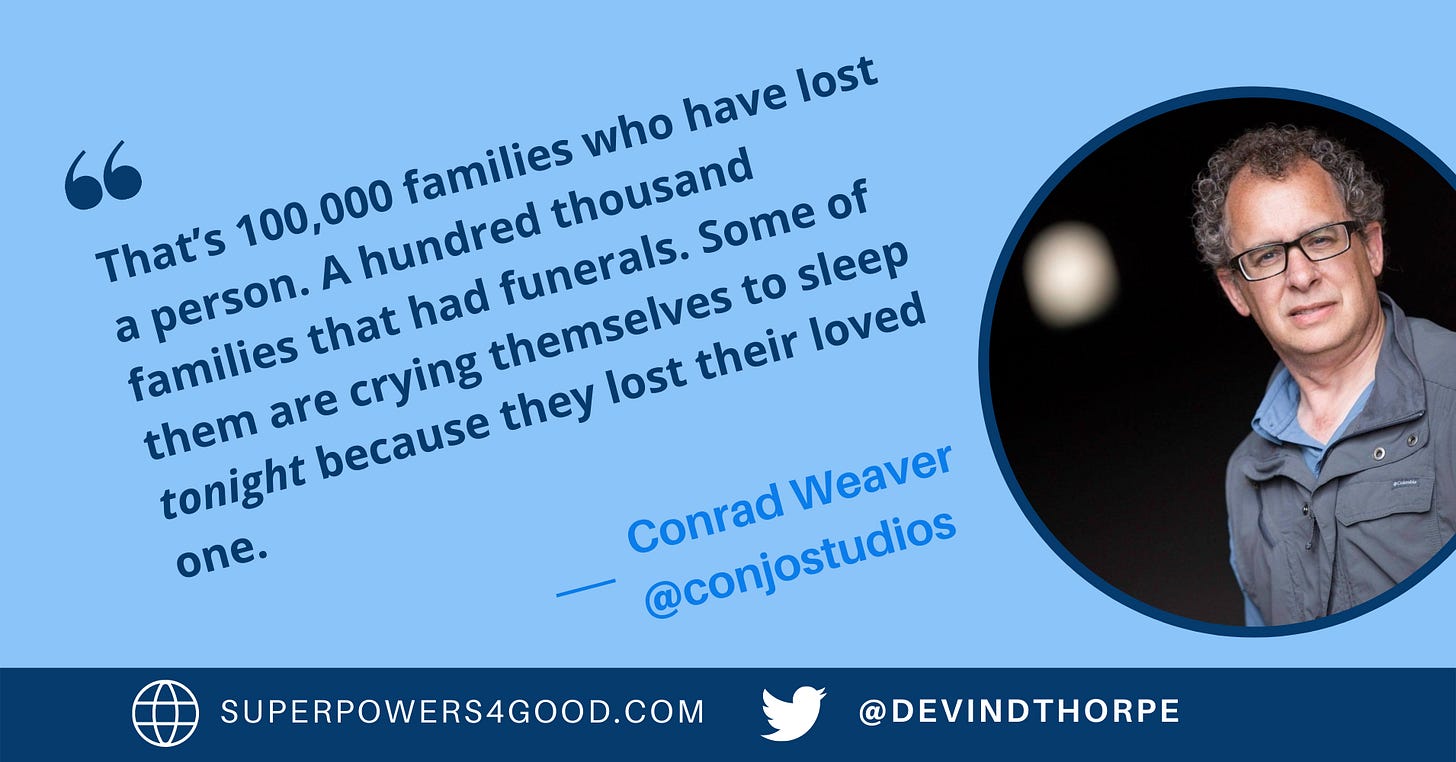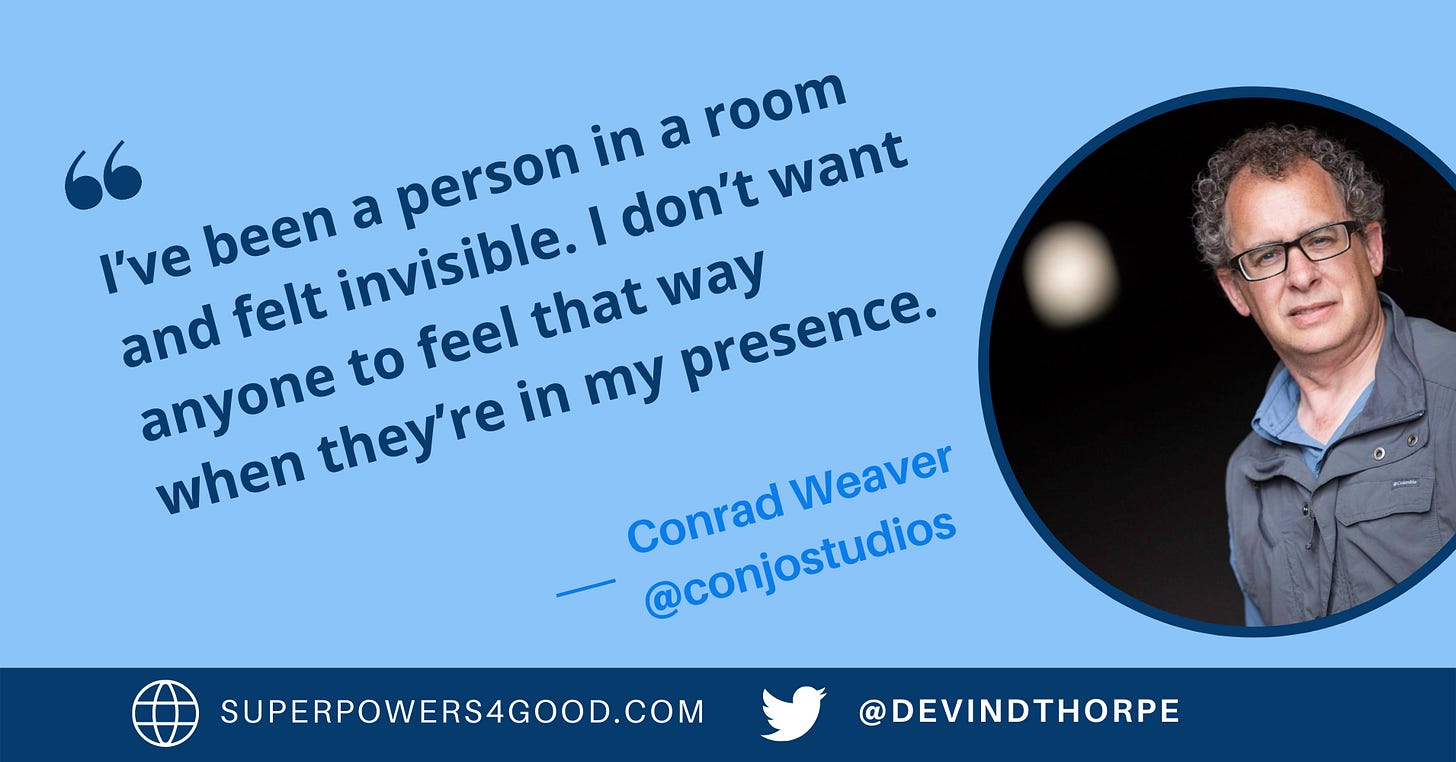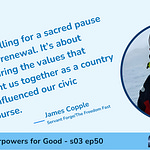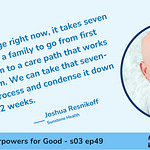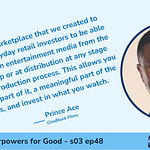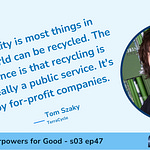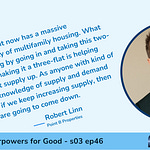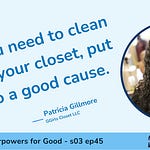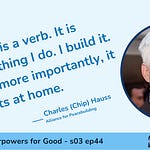Devin: What do you think of as your superpower, the superpower that enables all of your success?
Conrad: Superpower is something that. I don’t think about it a whole lot, but I think part of what drives me to success is just the willingness to take risks with a focus of helping others. I grew up in a family of—my parents were always taking in people. We were always taking a meal to someone. I remember one time we went, I was just 12 years old, and we went to a family downtown, and we delivered food to them, and they had nothing—literally opened their cupboards, so they had nothing in the cupboard. And so I grew up with that mentality of we need to serve, we need to help others. And I think that’s probably my superpower, this drive to help others, to make a difference, to make someone else’s world better and enable them to thrive as well because I’ve been blessed with so many amazing blessings. And I don’t want to just kind of sit on the pile and, you know, take it all in for myself. I want to give to others and help them achieve as well. So I think that’s my superpower.
“I started picking up a camera when I was probably nine or ten years old,” says Conrad Weaver, the award-winning documentary filmmaker and podcaster. Early in his career, he was tasked with video production. “I jumped into it and tried to figure it out and discovered I was pretty good at it and had a knack for storytelling.”
His first film, The Great American Wheat Harvest, tells the story of the harvesters who each season follow the maturing wheat crop south from Texas through the midwest to Montana. “That really gave me the bug to tell stories that matter,” Conrad says of the more than two years he worked on the project.
His second film, Thirsty Land, about the drought in the Western U.S., also demanded time away from home in Fredrick, Maryland. He began looking for stories closer to home just as the opioid crisis was gaining wide attention. He started work on his third film, Heroin’s Grip.
“I spent time with people that I never thought I’d hang out with,” Conrad says of the people in the film. They included family members of people who died from overdoses, the users whose addiction hasn’t allowed them to quit—yet and the first responders who work every day to help them.
The films touch lives and, Conrad hopes, change them as well. He shared this example:
In the film Heroin's Grip we have a scene where we were given permission to film at a funeral of a young man who had overdosed from heroin. A few months after the film came out, we were at a local event venue screening the film and a gentleman came up to me. It was the father of this young man. He says, ‘I come to every single one of these screenings locally because it's one more chance for me to connect with my son.’
Late in 2021, a shocking number hit the news. In the prior 12 months, an estimated 100,000 people died from opioids. “That’s 100,000 families who have lost a person. A hundred thousand families that had funerals. Some of them are crying themselves to sleep tonight because they lost their loved one,” Conrad says.
He sees the problem, in part, as reflecting global challenges. “[It] tells you something about the pain society is feeling right now. The reason many of these folks use these drugs is to numb the pain. Sometimes it’s physical pain. Or sometimes it’s mental pain.”
One of the leading causes of death is the presence of fentanyl. This powerful, cheap synthetic opioid is 50 times more potent than morphine in heroin and other drugs, dramatically increasing the risk of overdose. “These days, fentanyl is in every drug, including marijuana. Even marijuana has caused overdoses, opioid overdoses,” Conrad says.
The experiences he had making Heroin’s Grip have led him to his next project:
I was doing a ride along with a police officer, and we arrived on a on a scene where a woman was dead because of her drug abuse—she had overdosed. It was a very sad scene, very chaotic. I came home from that trying to figure out what I had just experienced. From that, I started thinking about the first responders who were on scene and did some research about what how trauma affects first responders and discovered how trauma is really impacting our first responders in a significant way.
He began work on another documentary, PTSD 911, which will be released this year. He also started hosting a podcast, PTSD 911 Presents, to discuss these challenges.
Conrad sees first responders as vulnerable heroes. “These are the people who volunteered, who volunteer, who say, ‘I want to get the training necessary to become this person to take care of our community.’ Yet these are the very people who are often hurting the worst.”
It is for them that Conrad wants to devote his focus for the rest of his career. He worries about first responders retiring and losing that sense of purpose that sustained them through their careers.
“They look for something to fill the void, look for something to numb the pain. And many of them, unfortunately—suicide rates among especially police officers who retire is incredibly high,” he says.
“I’m 56 years old looking at the future, looking at what I want my legacy to be, and I have a mission that I’m on to leave a legacy,” Conrad says.
As a result, he’s rebranding the podcast as the “Explore Purpose Podcast.” His heart remains focused on first responders but hopes to help a broader audience, including anyone that struggles to find a sense of purpose, especially in the second half of their lives.
Through Conrad’s work, he has been fueled by his superpower, that drive to help others.
How You Can Develop a Drive to Help Others As a Superpower
Taught from a young age by the word and deed of his parents who walked the talk of service to others, Conrad feels that commitment foundationally. Perhaps because he learned that from his family, he sees family roles as a priority.
“How how can I be a better husband? How can I be a better dad? Those are the two of the most important things for me. How can I be a better person of faith? You know, that’s important to me,” Conrad says. “Yeah, those are the foundations. If you put those things in line first and just be a better human being.”
But being concerned about others doesn’t stop with family members. As evidenced by the films he’s chosen to produce, his concern reaches well beyond his own circle. To help us see how he views the world and the people in it, he shares one example:
I had a conversation with a neighbor who's an African-American. He's a vice president of a local university, a very distinguished gentleman. I highly, highly respect him, and we were talking about the whole race, you know, race issue in our culture today, and we have this very open conversation about that. And he mentioned something to me that just really made me stop and think he said, You know what, when I'm out in public and as a black man, he said, I see the looks or I see the avoidance of a look. People look away. He said, I just want to be seen. I want to be recognized.
A master of empathy, Conrad adds, “I’ve been a person in a room and felt invisible. I don’t want anyone to feel that way when they’re in my presence.”
Looking at Conrad’s walk, which illuminates his talk, we can see that he cares deeply about people and the environment. He extended kindness and understanding rather than judgment or scorn. He’s eager to engage respectfully with people who see the world differently. Those, too, are pieces of evidence of his superpower that you can emulate to become more like him.
By following Conrad’s example, you can make a drive for helping others a strength that becomes a superpower for good.





